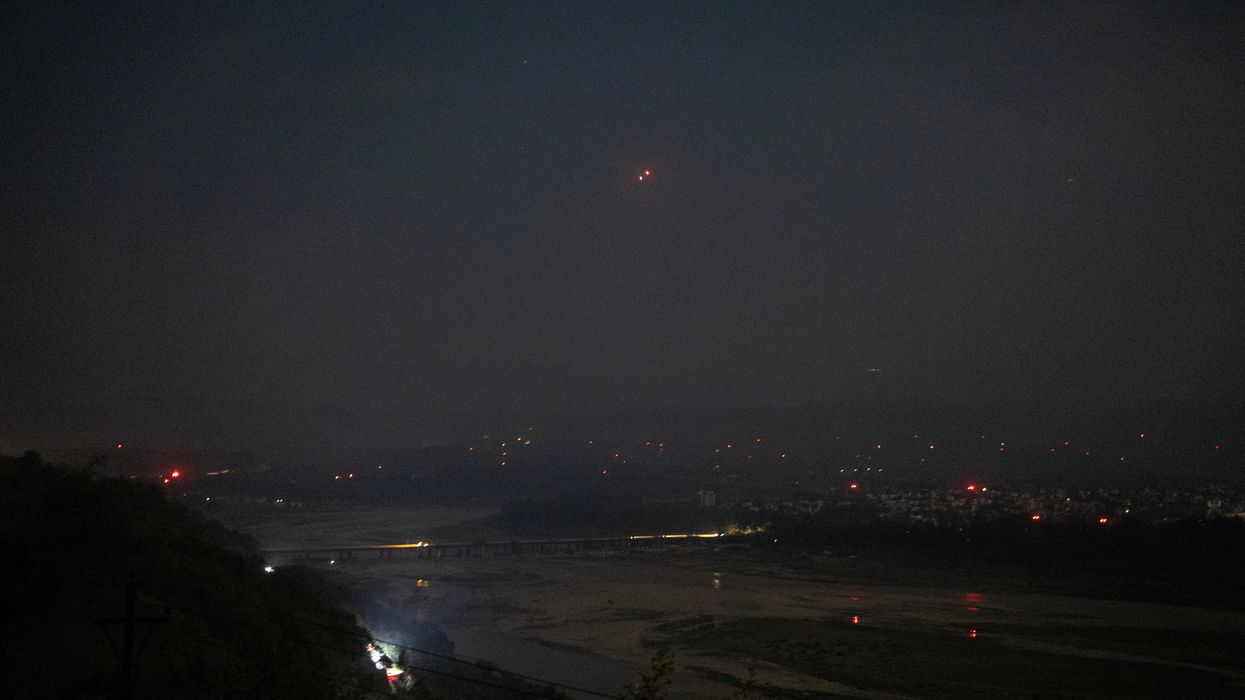THE CONFLICT between India and Pakistan over Kashmir presents an intelligence opportunity for China, as it may gather data from Pakistani use of Chinese-made fighter jets and other weapons during military action.
Security analysts and diplomats say China’s military has developed the capacity to monitor Indian military movements in real time, using its border infrastructure, naval presence in the Indian Ocean, and satellites.
"From an intelligence perspective, this is a rare target of opportunity right on China's borders involving a key potential adversary," said Singapore-based security analyst Alexander Neill.
Two US officials said a Pakistani J-10 jet, supplied by China, shot down at least two Indian military aircraft, including a French-made Rafale. India has not acknowledged the loss of any planes. Pakistan’s defence and foreign ministers confirmed the use of J-10 jets but did not comment on the weapons used.
Military analysts say the aerial clash is a rare chance to study how fighter jets, pilots, and air-to-air missiles perform in live combat. Such insights can help other air forces in their planning.
India and China share a 3,800-km Himalayan border, which has been disputed since the 1950s. A standoff that began in 2020 eased in October 2024 with an agreement on patrolling.
Both countries have strengthened their border military infrastructure, and China also uses satellites and other assets for intelligence gathering. The International Institute for Strategic Studies (IISS) says China operates 267 satellites, including 115 for surveillance and 81 for signals intelligence. This is second only to the United States.
"Both in terms of space and missile tracking capabilities, China is much better off now in terms of being able to monitor things as they happen," said Neill, who is also an adjunct fellow at the Pacific Forum think-tank in Hawaii.
China's defence ministry did not respond to Reuters’ questions about its satellite deployments or intelligence gathering. Pakistan’s military and information ministry also did not respond to queries about information sharing with China.
Pakistan has previously referred to its relationship with China as an "all-weather strategic, cooperative partnership".
India has not commented on the issue. However, its high commissioner to the UK, Vikram Doraiswami, told Sky News on Thursday that China's relationship with Pakistan was not a concern for India.
"China requires a relationship with all of its neighbours, that includes us," he said.
Missile deployments
Analysts and diplomats say Chinese intelligence teams may seek information on any use of Indian air defences or missile launches, including cruise and ballistic missiles. They may also study command and control systems.
Indian use of the BrahMos cruise missile, developed with Russia, would draw attention, some analysts say. They believe it has not yet been used in combat.
China has also increased its intelligence operations at sea, deploying space-tracking ships and other civilian vessels like oceanographic research and fishing boats in the Indian Ocean, according to open source trackers.
Diplomats say Chinese warships are still limited in the region due to the lack of bases, but China collects intelligence using other vessels.
Last week, trackers observed a large fleet of Chinese fishing vessels moving in a coordinated manner within 120 nautical miles of Indian naval drills in the Arabian Sea.
The Pentagon and analysts have previously said that China’s fishing fleets sometimes act as a maritime militia and help gather intelligence.
"These vessels may double up as listening posts, tracking development rhythms and response patterns, feeding early warning, naval intel to their sponsors," wrote open source tracker Damien Symon in a post on X, referring to the deployment of 224 Chinese vessels near Indian drills on May 1.
Chinese officials typically do not confirm the existence of fishing militia or intelligence activity by civilian vessels.
Analysts say China’s presence in Pakistan also helps it gather data. Chinese military advisers and other personnel are known to be in Pakistan as it imports advanced military systems from China.
"The presence of Chinese military advisers and other personnel in Pakistan is well-known given how Pakistan's Ministry of Defence has been importing some of its most advanced military hardware from China, so we can be certain the PLA would be able to access relevant data," said James Char, a security scholar at the S. Rajaratnam School of International Studies in Singapore.




